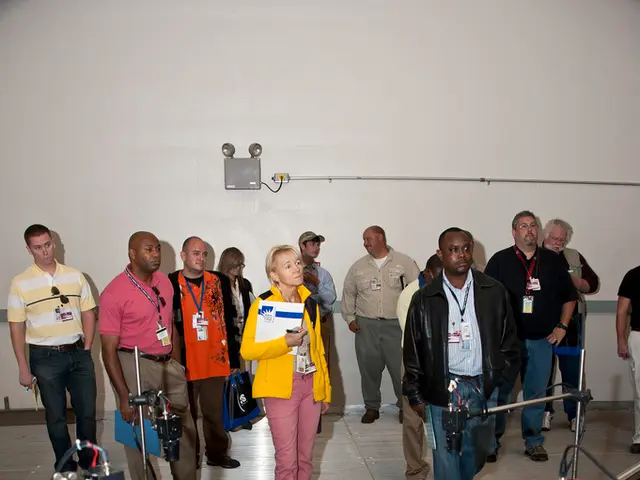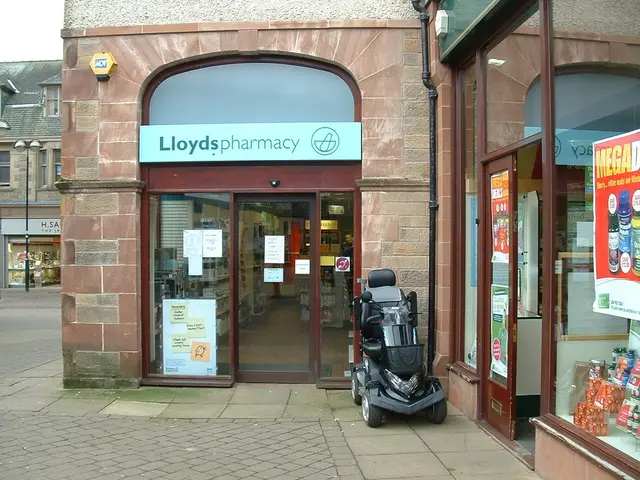Preparation Strategies Adopted by Limpopo NGO in Anticipation of Trump's Budget Reductions
New Day, New Worry: Hlokomela Clinic's Unease with US Aid Freeze
Sindy Nkuna, a data capturer at Hlokomela Clinic, felt a crushing weight when she received an email about a temporary U.S. foreign aid freeze in January. "I felt shattered," she shares, "My heart raced thinking about my kids and me."
Hlokomela Clinic, nestled 200km from Polokwane in the fruit and game farming community of the Mopani district, Limpopo, was about to lose a crucial lifeline. With the U.S. suspending grants from the Anova Health Institute, Hlokomela's funding for six HIV testing counsellors, a site coordinator, and part of their financial manager's salary was at risk.
Funding the HIV Fight
The U.S. government's AIDS fund, PEPFAR (President's Emergency Plan for AIDS Relief), supported these projects – mostly spearheaded by non-profit organizations in countries like South Africa. Hlokomela relied on PEPFAR's financial backing for its mobile testing clinics and team members who ran them.
Rough Road Ahead
With almost all of USAID funding facing a permanent cut in late February, Hlokomela found itself in a precarious position. Their HIV testing team had to be let go, and funding for essential items like cooler bags and transportation for mobile clinics disappeared. Routine HIV screening for approximately 1,000 people per month in 50 sites across Hoedspruit farms and communities came to a standstill, affecting Hlokomela's HIV outreach.
Christine Du Preez, Hlokomela's founder, likened the impact to even worse than the Covid-19 pandemic. The team had no choice but to adapt and persevere.
Adapt and Overcome
Leveraging the Community Health Workers
Hlokomela discovered that their nompilos, or community health workers, were the key to their resilience. These farmworkers received health education and learned to check blood pressure and heart rates, as well as screening for chronic conditions like HIV and TB. They received a monthly stipend and were instrumental in Hlokomela's operations.
The Road to Recovery
Before the funding freeze, HIV among farmworkers in Hoedspruit was a staggering 28.5%. Thanks to Hlokomela's efforts, that number has dropped to 6.5% in the latest data. However, the freeze has led to a devastating 90% drop in testing.
Despite the challenges, Hlokomela continues to weather the storm, leaning heavily on their community health workers to keep the clinic running and their community healthy. The clinic has a long road ahead, but they're equipped with the drive and resilience to overcome this setback.
[1] Fighting HIV/AIDS in South Africa: The Role of USAID and PEPFAR Fundinghttps://www.usaid.gov/south-africa/hiv-aids
[2] Impact of US foreign aid freeze on HIV/AIDS programs in South Africa and globallyhttps://www.who.int/hiv/policy/pepfar_nyc_factsheet.pdf
[3] The effects of the US aid freeze on HIV services in South Africa: a qualitative study of provider perspectiveshttps://www.thelancet.com/journals/lanpub/article/PIIS2468-2667(19)30535-X/fulltext
[4] Estimating the impact of disruptions in US funding on HIV services in South Africahttps://www.scienceopen.com/document?docId=10.1097/PLH.0000000000008741
- The suspension of PEPFAR (President's Emergency Plan for AIDS Relief) funding, a significant source for the health and wellness industry in countries like South Africa, has led to concerns within the medical-conditions sector, as seen with Hlokomela Clinic's precarious position in the wake of the funding freeze.
- The finance industry is also affected as Hlokomela Clinic grapples with the loss of funding for crucial medical-conditions projects, such as their mobile testing clinics and team members, which are normally funded by grants from the U.S.
- The health-and-wellness industry, represented by Hlokomela Clinic, is exploring innovative solutions to maintain their operations, by leveraging their community health workers and adapting their business model to keep the fight against medical-conditions like HIV/AIDS alive, despite the challenges imposed by the financing industry's decisions.









